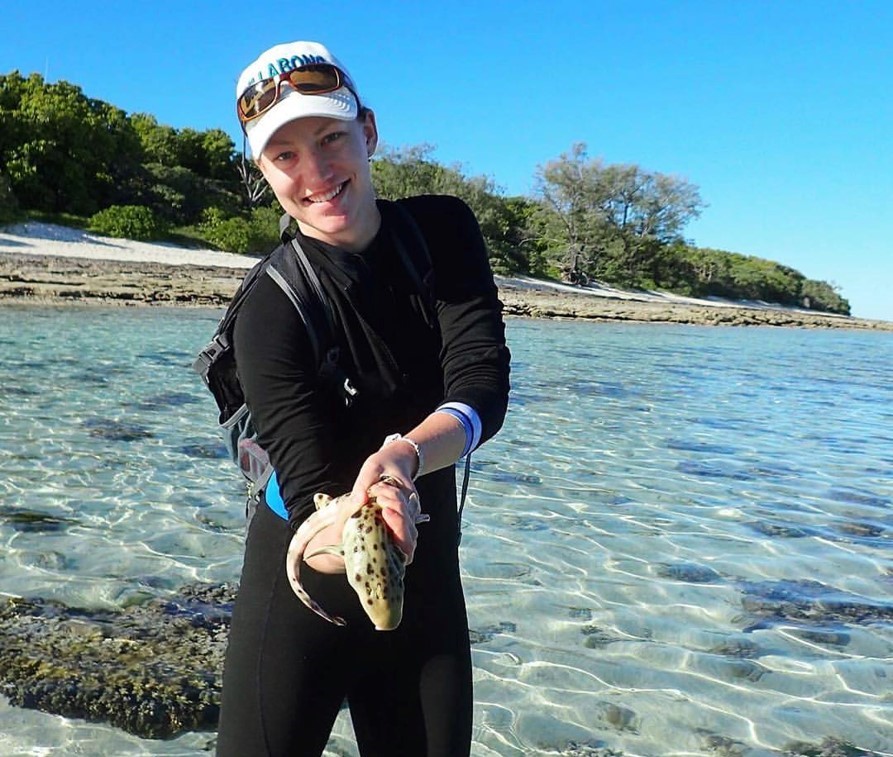
- This event has passed.
“Casting a Light into the Deep Sea” A Free Zoom Webinar Exploring Coral & Sponge Communities on the West Coast
August 19, 2021 @ 7:00 am PDT

The Santa Barbara Maritime Museum (SBMM) will present “Casting a Light into the Deep Sea,” a free zoom webinar with research ecologist Lizzie Duncan exploring what scientists are learning about deep-sea coral and sponge communities off the California coast. This presentation will take place on Thursday, August 19, 2021, at 7 pm and is free thanks to the generosity of Marie L. Morrisroe. Registration is required at: https://sbmm.org/santa-barbara-events/. Donations are welcome.
Ms. Duncan, a research ecologist with the National Oceanic and Atmospheric Administration (NOAA) Channel Islands Marine Sanctuary, will lead webinar participants through the deep, dark world of deep-sea coral and sponges through the lens of a West Coast research initiative. The webinar’s featured highlights will include what deep-sea corals and sponges are and why they’re important, the threats they face, and what tools scientists are using to study them. The presentation will also include never-before-shared images and findings from recent expeditions, including the Channel Islands National Marine Sanctuary, whose ultimate goal is to balance sustainable ocean use and ensure conservation of the Channel Islands’ ecosystems for future generations to enjoy.
It is surprising to learn that the majority of coral species, which provide numerous benefits to humans and animals, live in the frigid deep sea, beyond the reach of light. The deep sea is the largest and least studied ecosystem on earth. It is a hostile environment far below the surface of the ocean, characterized by crushing pressure, acidic water starved of oxygen, frigid temperatures, and darkness. Although these conditions make studying deep-sea habitats fraught with hazards and technical challenges, recent advances in technology have allowed scientists to explore seafloor features such as underwater canyons, seamounts, ridges, trenches, faults, and seeps that are thousands of meters below the surface.
In these seemingly inhospitable places, researchers have discovered vibrant and thriving coral and sponge communities that create oases of life amidst an otherwise sparsely inhabited environment. Despite its remoteness, however, life in the deep-sea is still impacted by the day-to-day activities of humans at the surface. Deep-sea coral and sponge communities are fragile, vulnerable, and valuable resources that need protection.
From 2018 to 2021, the West Coast has been the focus of an incredible field research initiative involving several unprecedented deep-sea expeditions that used a variety of cutting-edge technologies. As the West Coast and Channel Islands Initiative winds down this year, various agencies and organizations across the U.S. are analyzing the newly captured images and data.
Lizzie Duncan has been part of the sanctuary’s research team since 2017 and, in 2018, became a co-coordinator of the West Coast Deep-Sea Coral Initiative, a nationally supported and multiyear research program. Now, as a full-time research ecologist for the sanctuary, she continues to coordinate deep-sea research, develop and manage related education and outreach projects, and participates in several other research studies. Duncan relishes opportunities to conduct fieldwork in waters around the Channel Islands – be it in depths easily accessible by scuba or remotely operated vehicles (ROV); and, of her job, she says “I’ve been fortunate enough to participate in a handful of expeditions that use cutting-edge technologies – like remotely operated vehicles – to put eyes on parts of the seafloor that have never before been studied. Every mission is really exciting because you never know what you’ll find!”
Ms. Duncan earned her bachelor’s degree in marine biology and master’s degree in biology from California State University, Long Beach, and was awarded a National Science Foundation Graduate Research Fellowship that supported her graduate research at Stanford University’s Hopkins Marine Station. She also received an East Asia and Pacific Summer Institutes award to broaden her research experience at James Cook University, Australia; but her overarching research interest is to understand the role that rising temperatures play in shaping how key species live and survive in already extreme environments; having explored some of the shallowest, she’s excited to tackle questions and challenges in the deepest.


